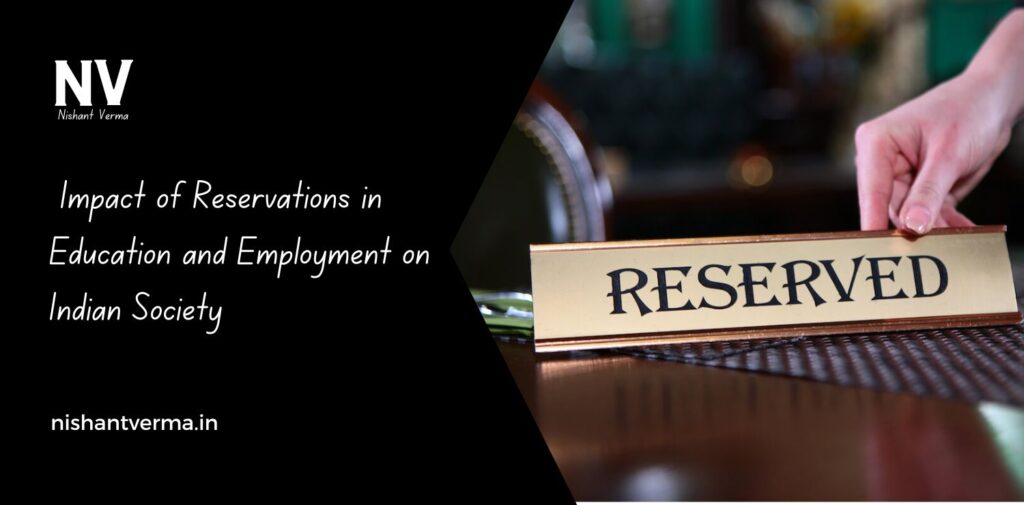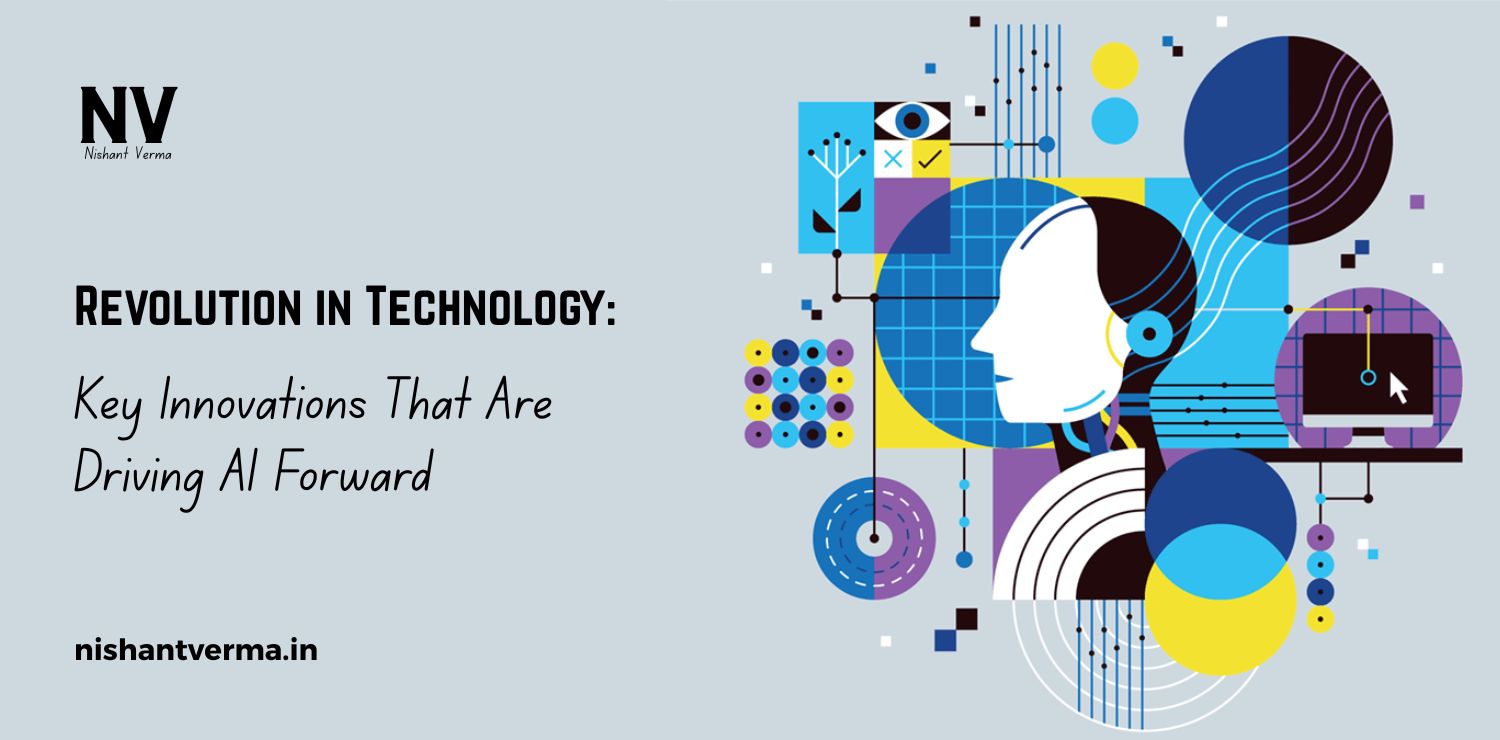India is a country with a rich history and diverse culture. But for many years, there were deep divisions in society based on caste. People from certain castes were given more opportunities, while others, especially from the lower castes, faced discrimination and were denied basic rights. To address this injustice, the Indian government introduced the reservation system. This system gives special opportunities in education and jobs to people from lower castes, so they can have a fair chance in life.
In this article, we will look at the impact of reservations in education and employment in India. We will explore how reservations help some people, the challenges they create, and what impact they have on Indian society. The goal is to explain these complex issues in a simple way, so everyone can understand, even a young child.
What is Reservation?
Before we understand the impact, it’s important to know what reservation means. In India, reservation refers to the practice of reserving a certain number of seats or opportunities for people from specific groups. These groups are mostly from lower castes, which include:
- Scheduled Castes (SC) – Historically called “untouchables.”
- Scheduled Tribes (ST) – Indigenous communities.
- Other Backward Classes (OBC) – Communities that are socially and economically backward.
The government gives these groups special advantages in education and jobs to help them improve their lives and achieve equality with others.
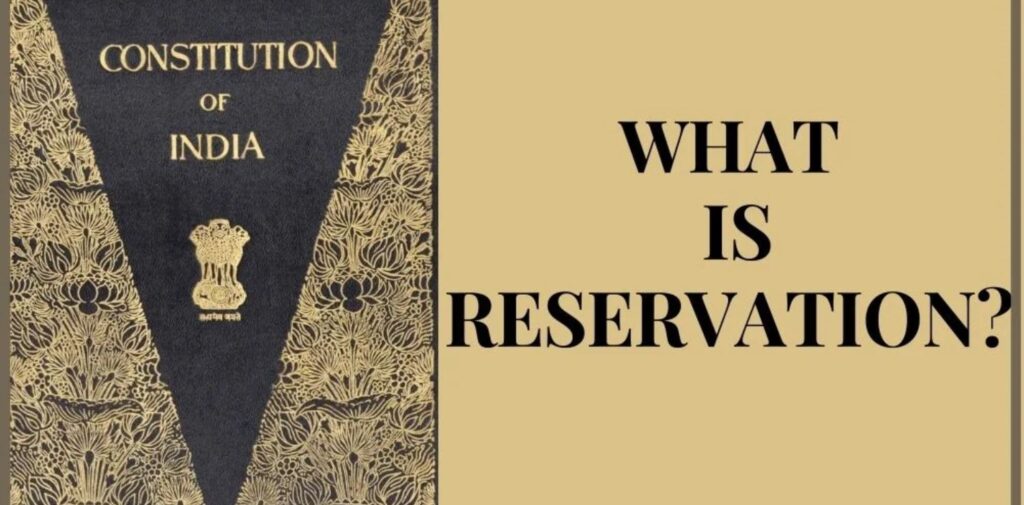
How Does Reservation Work in Education?
In education, reservation ensures that a certain percentage of seats in schools, colleges, and universities are reserved for students from SC, ST, and OBC categories. For example, if a university has 100 seats for a course, a certain number of these seats will be set aside for students from these groups.
This system helps students from these communities get a chance at higher education, which they might not have had due to social and economic reasons. By providing them with these opportunities, the government hopes to break the cycle of poverty and give these students a better future.
How Does Reservation Work in Employment?
In jobs, the reservation system gives a certain percentage of positions in government offices and public sector organizations to people from SC, ST, and OBC categories. For example, if there is a job opening in the government, a portion of the available jobs will be reserved for people from these communities.
This helps ensure that people from these communities are represented in the workforce and have a chance to improve their standard of living. Without such opportunities, they might be left behind in the race for good jobs.
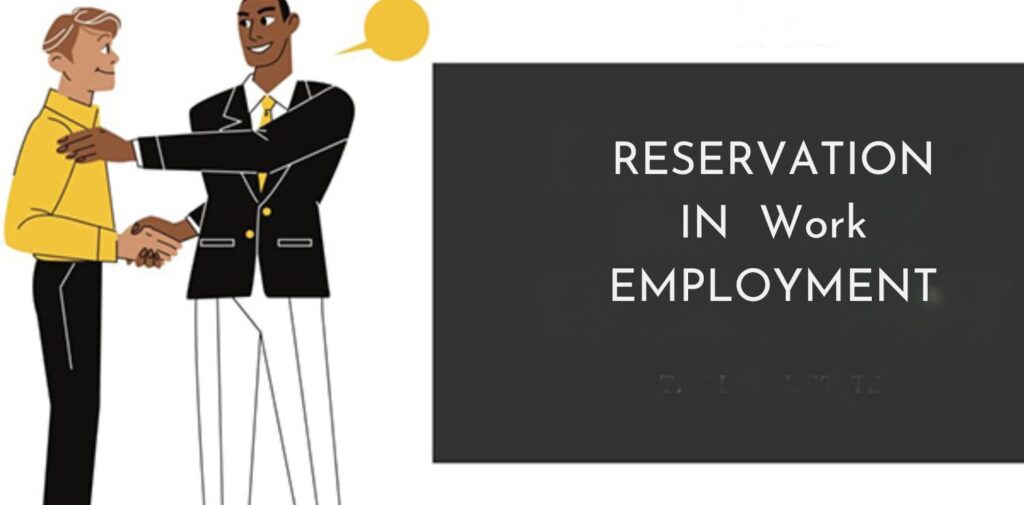
Positive Impact of Reservation in Education and Employment
1. Helping Marginalized Communities: The most important benefit of reservation is that it helps people from lower castes get access to education and employment. For many years, these communities were denied opportunities and treated unfairly. The reservation system gives them a chance to improve their lives and break free from the social and economic barriers that held them back.
2. Promoting Equality: The reservation system is an effort to bring equality in a society where people from certain castes had a much higher chance of success than others. By offering these special opportunities, the government aims to reduce the gap between different castes and create a more equal society.
3. Better Representation in Society: Reservation has also helped increase the representation of SC, ST, and OBC groups in important areas such as education, government, and public services. This ensures that these communities have a voice in decision-making and can contribute to the development of the country.
4. Breaking the Cycle of Poverty: When children from lower castes are able to attend school and later secure good jobs, they can lift their families out of poverty. This creates a positive cycle where future generations are also able to succeed. Over time, this can help reduce the economic gap between different communities.
Challenges of Reservation in Education and Employment
While the reservation system has its benefits, it also comes with challenges. Some people believe that reservations create unfair advantages for certain groups, and these challenges need to be addressed for the system to work properly.
1. Reverse Discrimination: One of the biggest criticisms of the reservation system is that it can lead to reverse discrimination. This means that people from higher castes, who may also be deserving of opportunities, might lose out because seats or jobs are reserved for others. Some people argue that the reservation system treats people unfairly, even though they may not belong to a higher caste.
2. Merit vs. Reservation: Another concern is the impact of reservations on merit. Merit means the skills, talent, and qualifications a person has. Critics of the reservation system argue that when seats are reserved based on caste, sometimes the best-qualified candidates might not get the opportunity. For example, a student from a higher caste with excellent grades might lose out to someone from a reserved category with lower marks. This can cause frustration among those who feel their efforts are not being rewarded.
3. Dependence on Reservations: Some people from lower castes may become too dependent on reservations and not work as hard as others to improve their skills. While reservations provide opportunities, they do not guarantee success. It is important for students and job seekers to put in effort and work hard to make the most of these opportunities.
4. Misuse of the System: In some cases, the reservation system has been misused. People who do not belong to the reserved categories may falsely claim to be from these groups in order to get benefits. This leads to unfair advantages and defeats the purpose of helping those who truly need it.
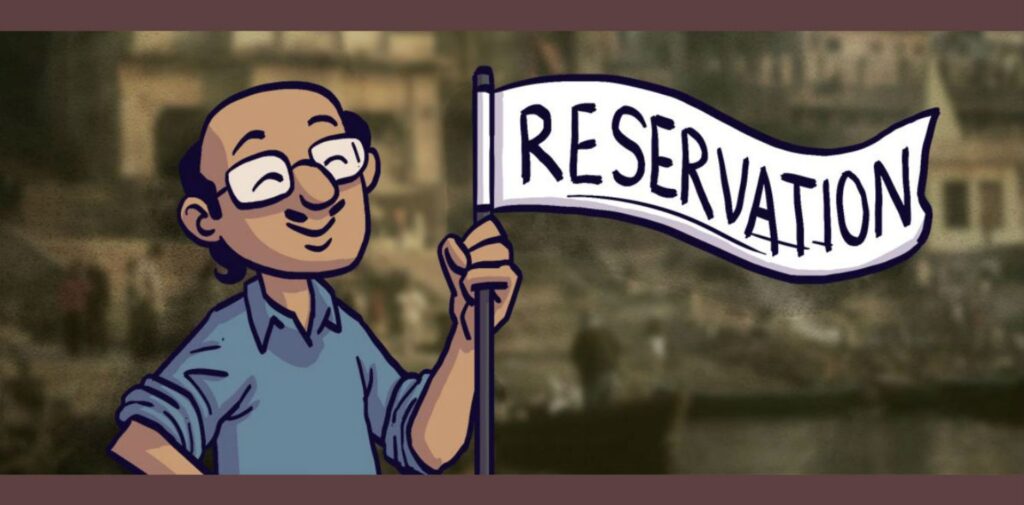
The Debate: Should Reservation Continue?
The reservation system has sparked a lot of debate in India. Some people feel that it is necessary to continue reservations until all communities are treated equally and no one is left behind. Others argue that reservations have become outdated and that the system should be changed to focus more on economic conditions rather than caste.
Moving Towards a Fairer Society
To make the reservation system more effective, many people suggest that it should be based on economic status rather than caste. This would ensure that those who are economically disadvantaged, regardless of their caste, can benefit from reservations. Many also believe that the government should focus on providing better education and training to all children, so that everyone has an equal chance to succeed, regardless of their background.
Conclusion: Impact of Reservations in Education and Employment
The reservation system in India has played a significant role in shaping the country’s education and employment sectors. It has helped millions of people from marginalized communities get better opportunities and improve their lives. However, it has also created some challenges, such as reverse discrimination and the issue of merit.
For India to move forward, it is important to continue making efforts to create a society where everyone, regardless of caste or economic background, has an equal chance to succeed. The reservation system should be seen as just one step towards achieving true equality and justice for all. With the right balance, India can build a future where everyone can contribute to the nation’s growth and prosperity.

